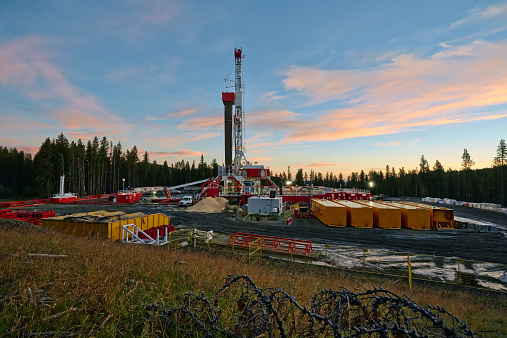
That wouldn’t be such a bad idea if, after selling or spinning off the energy assets, Freeport were left with something besides a faltering copper mining business. According to a press release issued Tuesday morning, Freeport will cut its board size from 16 to nine and begin “a review of strategic alternatives for its oil and gas business.” The review is being undertaken “following constructive discussions with many of its largest shareholders.”
One of those shareholders is Carl Icahn, who announced in late August that he controlled about 8.5% of Freeport’s stock and has since increased that total to 8.8%. Icahn said at the time that he believed the shares were undervalued and that he intended to have discussions with the board and management of Freeport relating to the company’s capital expenditures, executive compensation packages and capital structure. He also said he wanted the company to rein in its high-cost production operations.
ALSO READ: Huge Carl Icahn Energy Purchases Highlight Recent Insider Buying
If you read the latest announcement from Freeport with these statements in mind, it’s not too difficult to see who is leading the company’s strategic review. The company said that a previously announced public offering of a minority interest in Freeport’s oil and gas business is still an alternative, but that other alternatives under consideration include a spin-off to shareholders of the company’s oil and gas business, possible joint ventures and further spending reductions.
Let’s consider those options. First, what would spinning off a minority interest achieve? The company’s outstanding long-term debt at the end of the second quarter was $21.1 billion. An initial public offering (IPO) of, say, 25% of the oil and gas business likely would bring in not much more than around 10% of the long-term debt. There would be no significant change to Freeport’s asset base, but the company could try to hang on until the value of the oil and gas reserves rises and the company could sell at a higher price.
Spinning off the oil and gas assets gets Freeport’s board and management back out of the oil business. Exactly what value a free-standing oil company would have to shareholders is probably considerably less than Freeport thinks. That could all change in the medium term, of course, but it’s hard to see shareholders really liking this option.
Joint ventures would be a good idea if every other oil company under the sun were not cutting back on spending already. Freeport does control some good assets, but that is no distinguishing characteristic either.
As for reducing spending, in early August Freeport cut its 2016 and 2017 capital expenditure (capex) estimate on oil and gas from $2.9 billion to $2.0 billion. In late August, the company cut its 2016 mining capex from $2.7 billion to $2.0 billion, primarily on the impact of copper prices at six-year lows.
ALSO READ: 3 Deutsche Bank Oil Services Stock Picks With Over 100% Upside Potential
While the oil business was supposed to prop up the faltering copper and gold business, now both are faltering and Freeport is stuck.
Shareholders appear pleased with Tuesday’s announcement. Freeport’s share price was up more than 4%, at $11.64 in a 52-week range of $7.76 to $32.42. The consensus price target is $14.83.
100 Million Americans Are Missing This Crucial Retirement Tool
The thought of burdening your family with a financial disaster is most Americans’ nightmare. However, recent studies show that over 100 million Americans still don’t have proper life insurance in the event they pass away.
Life insurance can bring peace of mind – ensuring your loved ones are safeguarded against unforeseen expenses and debts. With premiums often lower than expected and a variety of plans tailored to different life stages and health conditions, securing a policy is more accessible than ever.
A quick, no-obligation quote can provide valuable insight into what’s available and what might best suit your family’s needs. Life insurance is a simple step you can take today to help secure peace of mind for your loved ones tomorrow.
Click here to learn how to get a quote in just a few minutes.
Thank you for reading! Have some feedback for us?
Contact the 24/7 Wall St. editorial team.




